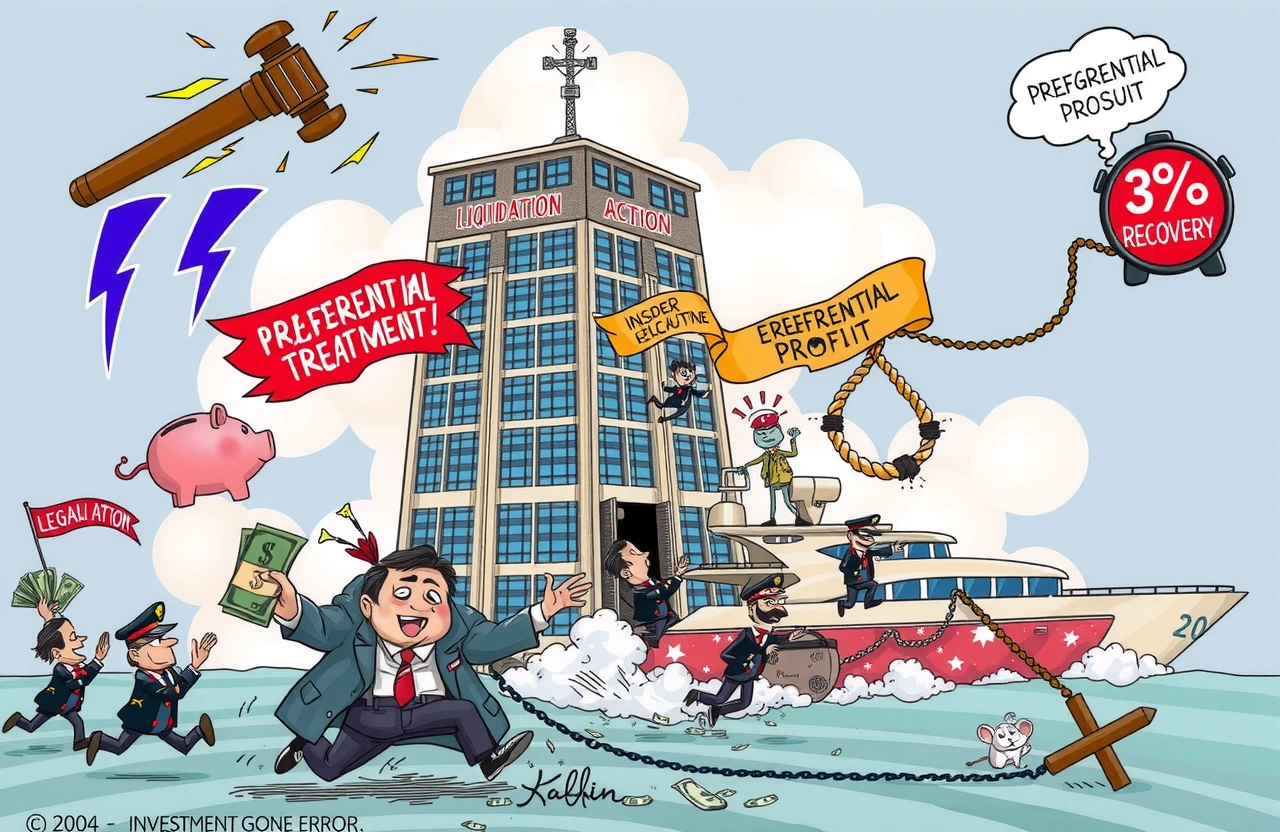The Shocking Social Media Confrontation
On June 30th, the verified Weibo account of Evergrande Financial Wealth Management made an extraordinary public demand: “Xu Jiayin (许家印) repay the money! Is anyone even working in the branding department anymore?” This direct challenge to the disgraced Evergrande founder stunned financial markets for several reasons:
– The account belonged to Evergrande Financial Wealth Management (Shenzhen) Co., Ltd. despite its business registration being expired since 2018
– Prior to this outburst, the account had been dormant since March 2018 – nearly six years without activity
– Neither Xu Jiayin (许家印) nor Evergrande Group issued any public response to the demand despite widespread media coverage
Financial analysts immediately questioned the authenticity given the account’s unverified status. Yet its survival on China’s tightly controlled social media platform suggested regulatory tolerance for this unprecedented corporate self-confrontation.
The Ghost Account Phenomenon
The reappearance of this abandoned corporate account highlights systemic communication breakdowns within China’s crisis-hit property sector. Many defunct subsidiaries maintain dormant social profiles that could potentially reactivate unpredictably.
Evergrande Wealth’s Downfall Timeline
The wealth management division’s collapse traces back to September 2021 when China Evergrande Group’s liquidity crisis became public. Employees revealed their mandatory investments in company financial products had stopped paying out:
– Over 70,000 retail investors held approximately $6 billion in Evergrande Wealth products
– Xu Jiayin (许家印) personally pledged at a September 10, 2021 emergency meeting that “every penny” would be repaid
– Three repayment options emerged: cash installments, property offsets, or parking proceeds claims on Evergrande properties
Academic research indicates less than 12% of investors received partial compensation before repayments froze completely in August 2023.
The Leadership Redemption Scandal
Public outrage erupted when investigations revealed multiple Evergrande Wealth executives had rescued their own investments months before the collapse. Six senior managers led by Du Liang (杜亮), then serving as CEO, withdrew 12 investments totaling approximately $22 million from May to September 2021. This insider activity triggered:
– Criminal investigations against Du Liang (杜亮) and associates
– Permanent distrust among retail investors
– Regulatory actions emphasizing preferential treatment prohibitions
Legal Tsunami Against Evergrande Leadership
The wealth management unit’s failure precipitated cascading legal actions against Evergrande’s leadership:
Criminal Proceedings
Shenzhen police formally detained Du Liang (杜亮) and Evergrande Wealth leadership in September 2023 on suspicion of illegal fundraising. The investigation remains ongoing as prosecutors determine charges.
Capital Market Punishments
China Securities Regulatory Commission imposed record penalties in May 2024:
– $41.75 billion fine against Evergrande Real Estate
– $47 million penalty against Xu Jiayin (许家印) personally
– Lifetime ban from securities markets against Xu Jiayin (许家印)
Regulators determined fraudulent bond issuance practices occurred between 2019-2020.
Liquidation Acceleration
Hong Kong’s High Court ordered China Evergrande Group into liquidation on January 29, 2024 – the largest corporate collapse in Hong Kong market history. The ruling triggered:
– Appointment of Alvarez & Marsal as liquidators
– Removal of shareholder participation rights
– Continued trading suspension of Evergrande shares
The $6 Billion Dividend Recovery Lawsuit
In August 2024, liquidators filed claims against Xu Jiayin (许家印), former CEO Xia Haijun (夏海钧), ex-CFO Pan Darong (潘大荣), Xu’s ex-spouse Ding Yumei (丁玉梅), and three offshore holding companies seeking recovery of approximately $6 billion in “unlawful dividends” paid from 2017-2020.
The Hong Kong High Court accepted jurisdiction despite PRC connections – establishing precedent for cross-border liquidation enforcement.
The Personal Fall of Xu Jiayin
Xu Jiayin (许家印), formerly China’s second-richest person, faces unprecedented personal restrictions:
Detentions and Restrictions
Since September 28, 2023, Xu Jiayin (许家印) has been in formal detention facing unpublicized criminal charges. Guangzhou courts escalated pressures in November 2024 by:
– Imposing high-consumption restrictions across personal activities
– Freezing known assets including Hong Kong luxury properties
– Banning business class travel and luxury purchases
Industry analysts interpret this as prelude to fraud conviction.
Broader Market Implications
Evergrande’s collapse continues rippling through China’s economy:
Property Sector Contagion
Over 50 other Chinese developers defaulted since 2022 following Evergrande’s downfall. Nearly $130 billion in offshore bonds remain unsettled industry-wide.
Investor Confidence Impact
Global funds reduced Chinese property exposure by 78% since 2021 according to UBS analysis. Private wealth management products contracted nationally.
Pathways for Affected Investors
While prospects remain bleak, liquidators outline potential claim avenues:
– Formal claims registered through HK liquidation proceedings
– SEC whistleblower programs for American investors
– Collective private lawsuits against directors
The Limited Recovery Prospects
Law firms anticipate less than 3% recovery based on:
– No significant unpledged assets remaining
– Transitioning market valuations freezing recovery chances
– Chaotic corporate governance obscuring liabilities
Broader Corporate Governance Lessons
This crisis exposes systemic vulnerabilities that regulators now address:
– Anti-Bankruptcy Maneuver Restrictions: Authorities tightened rules preventing asset transfers before liquidation
– Wealth Product Oversight: New China Banking Regulatory Commission requirements mandate clearer retail fund risks
– Corporate Accountability: Expanded authority for liquidators to pursue personal assets
Financial institutions globally study this collapse as the definitive example of debt-fueled growth limitations.
The Final Accounting
Evergrande Wealth’s public demand for Xu Jiayin (许家印) to repay the money represents far-reaching repercussions of uncontrolled leverage. Retail investors now recognize celebrity founders offer no guarantees against corporate implosion.
Consumers should demand rigorous oversight before purchasing wealth management products seeking above-market returns. Xu Jiayin (许家印)’s fall demonstrates that financial gravity inevitably prevails – demanding repayment remains valid.
Global stakeholders tracking this case must pressure authorities to maintain proceedings transparency. Only consistent creditor treatment prevents erosion of market trust.




